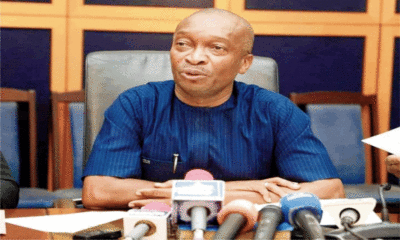News
Rise Up Against Herdsmen, Danjuma Tells Nigerians …Says Meyitti Allah Determines What Happens In Presidency …Army Working With Buhari To Grab Lands, Give Same To Fulanis
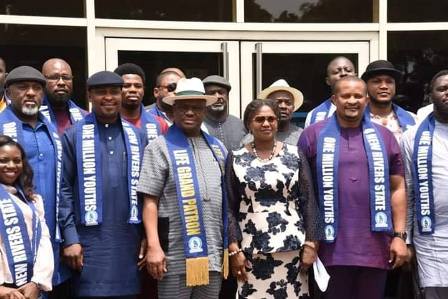
Elder statesman and retired military general, Theophillus Danjuma, say herdsmen have declared war against Nigeria and grabbing lands, urging citizens from every part of the country to rise up and defend themselves before it is too late.
The elder statesman, in a statement obtained by The Tide, yesterday, alleged that the Army was working with President Muhammadu Buhari to grab lands from its original owners in the North, South, East and West and give same to Fulanis from West Africa and beyond.
It further said that while the rest of Nigerians were crying helplessly, Buhari’s primary objective was “to use the Nigerian Armed Forces, Boko Haram and herdsmen to fight jihad and massacre the indigenous people, and take over our lands and give to Fulanis”, saying that fight has started.
It reads, “The Nigerian Army under Buratai is working with President Buhari to grab lands from indigenous Nigerian owners and give it to Fulanis from West Africa and turn indigenous Nigerian people and land to modern-day Fulani colony.
“Rise and defend your land now, rise now before it is too late. No election until this Fulani killing is stopped and lands grabbed restored back to the people, and the criminals identified, arrested and punished according to law of the land. This pogrom must stop, yes, it must be stopped. We did not elect them to murder us.
“It is a big shame to about 165million indigenous Nigerians from predominantly Hausa North, Middle Belt, Igbo East and Yoruba West to allow; only three million Fulanis (who are Arab Africans) we accommodated to take over Nigeria, and be killing everybody in the name of herdsmen and Boko Haram, and take over our ancestral lands.
“Big shame to the rest of the people crying like fools. President Buhari’s primary objective to use Nigerian Armed Forces, Boko Haram and herdsmen to fight jihad and massacre the indigenous people and take over our lands and give to Fulanis have started. They have conquered Hausa, they lost who they are, now, they are fighting and killing people across Middle Belt (Kogi, Taraba, Plateau, Kaduna, Nasarawa, Borno, Benue etc) sacking them from their communities, and Presidency protecting and arming the murderers.
“They have conquered South-West by half through Tinubu dynasty, after Middle Belt, they planned to work over South-West to gather strength to fight the South-South and South-East. This will be the battle of Armageddon. It is a shame for indigenous Hausa, Igala, Tiv warriors, Idoma, Igbo, Yoruba, Calabar, Kalabari, Benin, Ishan, Urobo etc to name but few to seat and watch Buhari destroy and turn Nigeria to Fulani colony.
“This is a war against 165million Nigerians declared by three million Fulanis headed by Buhari. It is time to rise and stop Buhari and his gang of murderers called Fulani herdsmen. He is their patron and his loyalty goes to the Fulanis in West Africa and Arabs.
“If you are a soldier, police, members of National Assembly, professor, academicians, governors, from these indigenous 165million being used by Buhari to destroy your ancestral inheritance and your people, you should be shamed and do everything now to stop Buhari.
“Because in the end, after using you to destroy your people, you yourself will be destroyed. We must all say no to Fulani herdsmen destruction now and stop them. Miyetti Allah now determines what happens in the Presidency. They warn constitutionally elected governors of states and threaten destruction and Nigerian Army supports them.
“This is not about politics, its pogrom and ethnic cleansing by Buhari and his gangs. Let the indigenous Nigerians rise now, and say enough is enough. Our soldiers should refuse Buhari and Buratai’s command and secure their people.
“Senate and House of Representatives should stand up to their duties and stop this evil before Buhari destroys every one. Enough is enough. We are tired of mass burials of innocent people from across Middle Belt killed and murdered by Meyitti Allah and Fulani herdsmen and their land stolen and renamed.
“It is time to rise up boldly against these killings and land grabbing, and let us all say ‘no to grazing route’ and planned illegal land grabbing by Federal Government to give herdsmen in the name of open grazing and ranching. Ranching should be a private business, not government business. Let us all throw away our divisions and fight this war, unleashed on indigenous Nigerians by President Buhari and his Fulani herdsmen which he is their life patron,” Danjuma said.
He further said the Fulani herdsmen and Boko Haram were not tax payers, saying, “They are foreigners – Arab Africans. This is more than religion. Both indigenous Christians and Muslims are massacred under the supervision of President Buhari. It is land grabbing”, he added.
News
Fubara Gives Scholarship To 100 Children, Widows Of Fallen Heroes
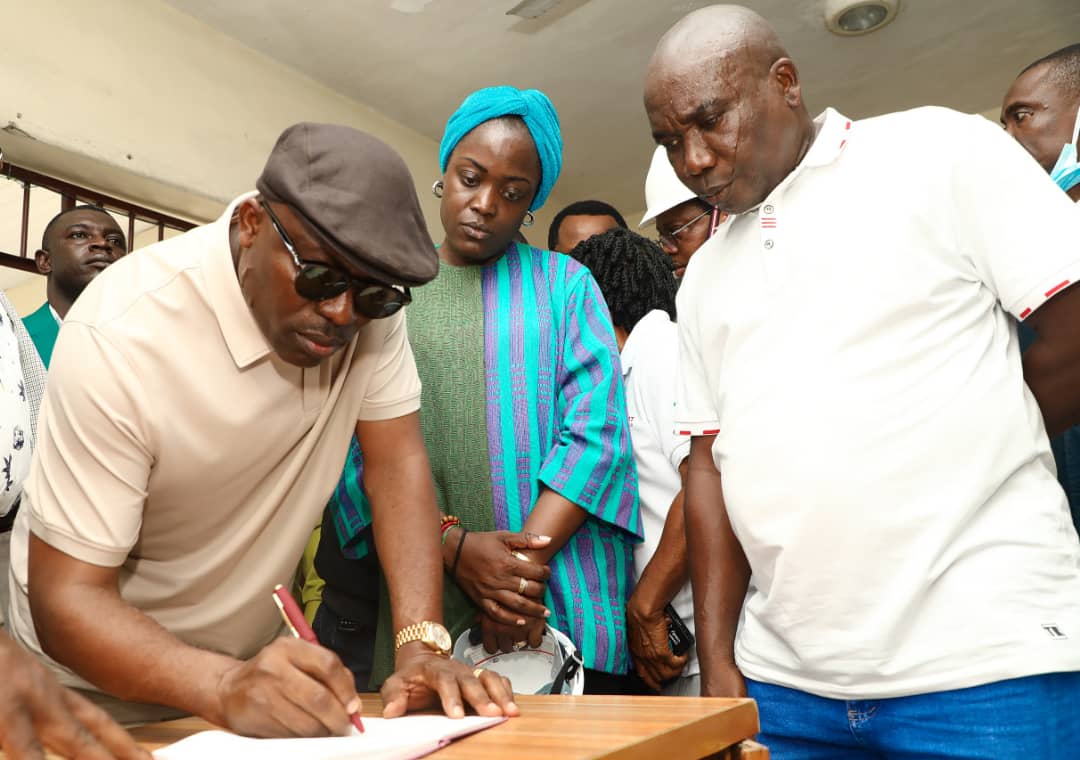
Rivers State Governor, Siminalayi Fubara, has given scholarship grant to 100 children and widows of fallen heroes of the Nigerian Legion, Rivers State command.
Presenting cheques to the beneficiaries, Fubara, represented by the Secretary to the State Government, Dr. Tammy Danagogo, advised the students to take their studies seriously.
“Make good use of this opportunity, by dint of hard work. Anyone can be great in any field of choice. I want you to know that the future is bright but it is in your hands.
“Tomorrow, you can be the leader that Nigeria needs at both national and state levels, but you must work hard now. Make good use of this opportunity by being focused on your studies,” he admonished the beneficiaries.
The governor further commended the leadership of the Legion in the State for sustaining the scholarship scheme for the widows and children of fallen heroes.
“The best gift you can give to anyone is education. By educating them, you are empowering them to become good leaders of our society. They are the future of our country, continue the good works,” he stated.
The ceremony was also attended by the National Leader of the Nigerian Legion, Maj. Gen. A.M, Jubril (Rtd), the Commissioner of Education, Dr. Ivy Chiemedum, representatives of Service Chiefs, members of the Nigerian Legion in Rivers State and widows of fallen heroes.
News
FG Panics As #EndBadGovernance Protest Begins, Aug 1 …Yoruba Youths, Ezekwesili Call For Caution
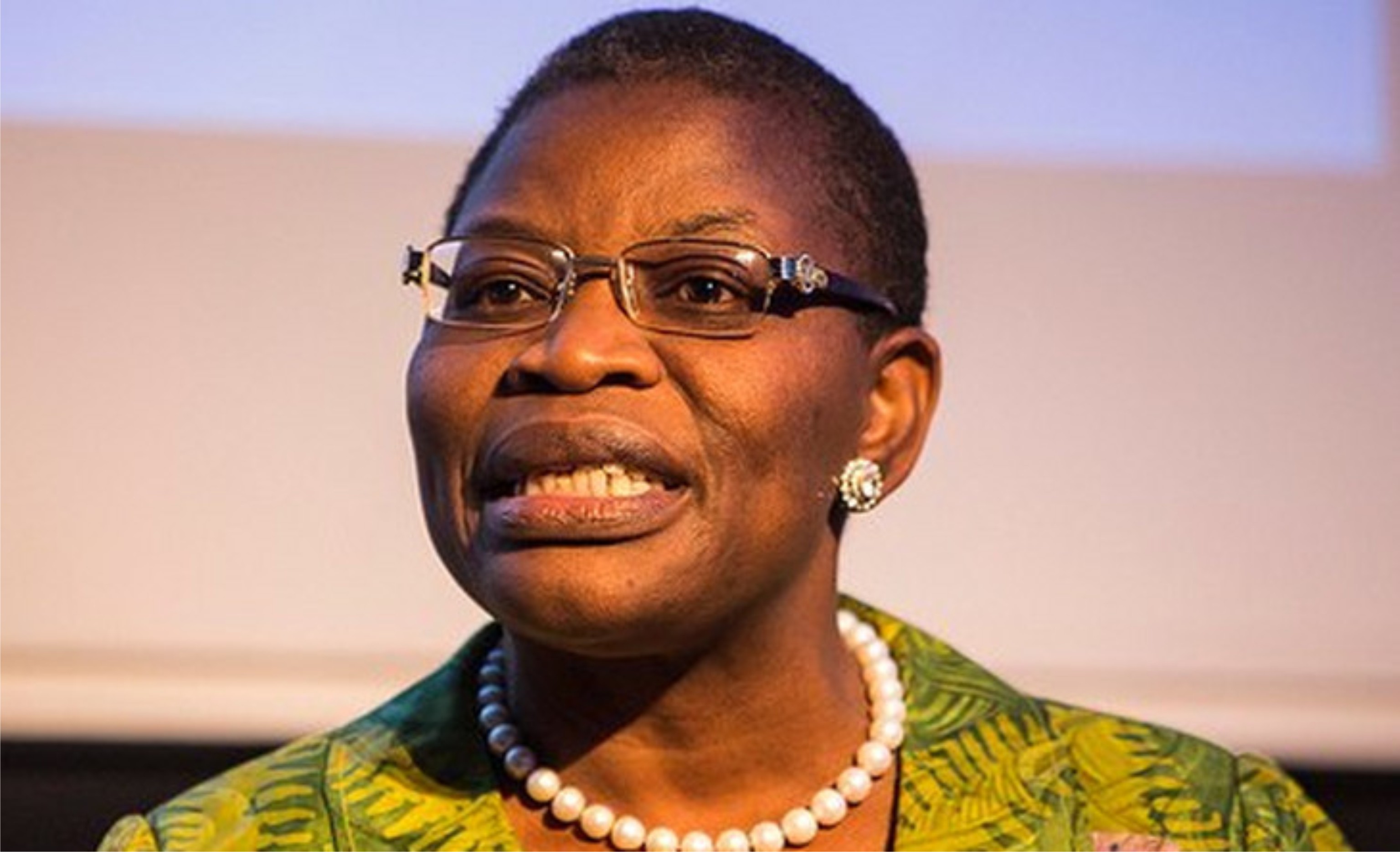
There is palpable fear within the government circle as the plan to organise a nationwide protest against economic hardships have gained significant traction on social media.
President Bola Tinubu met with some traditional rulers in the country and governors from the All Progressives Congress (APC) under the aegis of the Progressives Governors Forum at the Presidential Villa, Abuja, yesterday.
The President’s meeting with the APC governors began at minutes past 1pm, while the meeting with the traditional rulers began at about 2:30 pm when the President arrived at the Council Chamber.
Although the agenda of the two meetings was not disclosed, sources revealed that it may not be unconnected to the planned protests scheduled for August 1-10.
The planned protests, organised under the hashtag ‘EndBadGovernance,’ have gained significant traction on social media even as the organisers remain largely anonymous, with no group officially claiming responsibility.
This meeting follows an earlier conclave of the Nigeria Governors’ Forum on Wednesday night and comes after a last-minute cancellation of the National Economic Council (NEC) meeting earlier scheduled for yesterday.
Leading the delegation of royal fathers are the Sultan of Sokoto, Muhammad Sa’ad Abubakar III, and the Ooni of Ife, Oba Adeyeye Enitan Ogunwusi, while the APC governors delegation was led by its chairman and Governor of Imo State, Hope Uzodimma.
Present at the meeting are Vice President Kashim Shettima, Secretary to the Government of the Federation, George Akume; the National Security Adviser, Nuhu Ribadu, and the Inspector-General of Police, Kayode Egbetokun, and Governor Abdulrazaq Abdulrahman of Kwara State who is the Chairman of the Nigeria Governors Forum, and Hope Uzodinma of Imo State, who chairs the Progressives Governors Forum.
The Minister of Finance and Coordinating Minister of the Economy, Wale Edun, and the Minister of Budget and Economic Planning, Atiku Bagudu, also joined President Tinubu at the meeting.
Both the APC governors and traditional rulers did not brief the press after the two separate meetings.
However, the Coalition of Yoruba Youth leaders have called on organisers of the planned nationwide protest to shelve the idea and remain calm.
President-General of the coalition, Dr Tolani Hassan, said in a statement in Lagos, yesterday, that the apex umbrella body for all Yoruba youth associations and organisations had dissociated itself from the protest.
Hassan, who is also the National President, Yoruba Youths Association Worldwide , however, said that the coalition recognised the plight of Nigerians.
“The economy is unfriendly, the cost of living is outrageous and out of the reach of the common man.
“It is also true that the inflation rate is in the double digit and the unemployment rate in Nigeria is alarming.
“So many graduates are out there with no means of survival. The Federal Government has not employed people in the last couple of years.
“However, the leadership of Yoruba youth leaders do not want a repeat of the ENDSARS saga, hence, our call for protest cancellation and calm,” he said.
The president-general urged the organisers to rather employ other measures to make the government across levels understand the economic hardship in the land.
“There should be a more refined manner of getting our leaders to hear our plights other than protest.
“There are agitations and insecurity in every part of the country, any attempt to have a protest now may cause mayhem, which is not the solution to our pressing challenges.
“The apex body of the entire youths in Yoruba land expressly dissociates itself from the planned protest.
“We will defend the entire South-West against any form of destruction by disgruntled elements, who may want to cause havoc in the region, particularly, Lagos state,” Hassan said.
Similarly, Hassan emphasized the need to embrace unity, pointing out that dialogue is the best way while consultation is a better approach.
He, however, pleaded with President Bola Tinubu to listen to the youth -”his children”, who were agitated.
“We love you Sir, Mr President, but we are hungry and unemployed,” the president-general said.
The youth leader advised Tinubu to directly interface with all the youth leaders in the various geo-political zones, saying the use of intermediaries would not bring results.
He called for a National Youth Summit, where all the various youth leaders would discuss with Mr President and address all the prevailing issues.
Stressing the coalition’s continued support for the President, Hassan urged the Federal Government to review both the monetary and fiscal policies, in the interest of the Nigerian masses.
He called for concerted effort by both the public and organised private sector to engage in massive employment generation and reduction of job losses.
“The economy should be friendly to both local and foreign investors. The power sector should be completely overhauled. This is the hub of the economy,” Hassan said.
He called for the review of educational curriculum from primary to tertiary level and inculcation of practical skills, including agriculture, to make Nigerian youths self-reliant.
The youth leader, who appreciated the inclusion of youths in the Federal cabinet, demanded for more, and urged the Federal Government to regularly engage the youth leadership of the various geo-political zones.
“35 per cent slots should be given to youths in the federal cabinet and federal boards appointment,” he said.
Meanwhile, a former Minister of Education, Oby Ezekwesili, has urged the federal and state governments to handle the planned protests with civility and empathy.
In a statement titled “My Position on the Nationwide Protest of our Young Citizens,” and posted on X, yesterday, Ezekwesili highlighted the distress being experienced by many Nigerians, particularly the youth, due to severe economic hardships.
“All reasonable people know that the majority of our citizens—especially the young ones-are distressed on many counts, from biting economic hardship that is prevalent in the country today. They blame it on bad governance and are therefore demanding an end to it,” she stated.
She criticised the reactions of politicians, public officials, and their allies, which she described as undemocratic and lacking empathy.
She pointed out that news of the planned protests has already caused agitation among government officials.
“I hope the Federal Government and its allies can quickly and wisely cease from threatening those among our citizens who wish to exercise their constitutional right of expression, association, and movement through a nationwide protest,” she urged.
The Bring Back Our Girls Convener called on President Bola Tinubu, the National Assembly, and state governors to seize the opportunity presented by the protests to engage with the dissatisfied youths.
She emphasized the importance of protecting and supporting the protesters to ensure peaceful demonstrations.
“Ensure that the protesters are protected and supported by the police and related agencies like the Civil Defence Corps to protest peacefully and orderly in presenting their demands and agitations to the authorities.
“Be guided by the terrible lessons of the mishandling of the #EndSARS protests,” she advised.
Ezekwesili also recommended that the government respond to the protesters with a clear plan to achieve good governance on the issues being raised.
She stressed the need for politicians and public officials to listen and learn from their citizens.
“I hope that our politicians and public officials will heed counsel and allow themselves the humility of listening and learning from their citizens at a time like this,” she added.
Boye Salau
News
ECA Advises African Countries On Rising Indebtedness
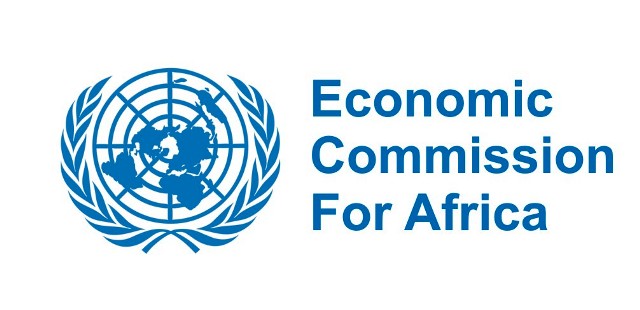
The Economic Commission for Africa (ECA) has called on countries to explore reforms on the common debt relief framework to better address rising indebtedness in Africa.
The Executive Secretary, ECA, Mr Claver Gatete, in a statement presented this at a joint press briefing on the margins of the recently concluded 2024 High Level Political Forum (HLPF).
Gatete highlighted the challenges of accessing financing for the continent’s priorities, especially the concessional funds that are long term and cheaper.
He said the reform of global financing system was urgent, as it could mitigate access to critical resources needed for the implementation of the Sustainable Development Goals (SDGs).
The Tide’s source reports that the African Development Bank (AfDB) said that from 2010 to 2023, Africa’s debt increased by 192 per cent.
The AfDB data also showed that African countries paid 163 billion dollars annually with an external debt stock of 1.1 trillion dollars, the highest ever seen,
According to Gatete, this means that by paying the debt, countries would have very little room to implement the SDGs and the next 10-year programme of the African Union (AU).
Gatete highlighted the need for domestic resource mobilisation in Africa to tackle illicit financial flows and improve taxation.
He also emphasised the importance of developing capital markets to provide long-term resources as part of private sector engagement in Africa.
He said: “There are opportunities in restructured green, blue and sustainability linked bonds that can attract more investors to fund climate-related solutions.
“ECA is working with countries to strengthen domestic resource mobilisation through capital markets to improve self-financing and financial sustainability in Africa.”
He said it was crucial to increase fiscal space and address interrelated issues, including peace building and conflict prevention.
“Also the involvement of the youth in sustainable development processes to ensure long term progress, “ he said.
Ms Christina Duarte, Head of the United Nations Headquarters based Office of the Special Adviser on Africa (OSAA), SDG implementation said only 12 per cent of the 140 targets of the SDG have been delivered.
She said to understand the root causes of the financing challenges faced on the continent, the focus should be on sustainable financing and institutional strengthening in Africa to build resilience.
“So, long-term solutions such as tackling economic and financial flows to address Africa’s debt distress and deliver on the sustainable development goals is very critical,’’ she said.
The HLPF Africa Day aims at highlighting key issues stemming from the Africa Regional Forum on Sustainable Development (ARFSD) and other major consultations.
The joint briefing displays how the AU, the UN Office of OSAA and ECA work together to support African member states in implementing the SDGs and the AU’s Agenda 2063.
The HLPF pulls together member states from around the world to forge pathways to accelerate the implementation of the SDGs.
-
Business3 days ago
NGX Digital Investment Platform Gets SEC Approval
-
Niger Delta3 days ago
Investigate Benin Airport Attack, Edo Urges RG
-
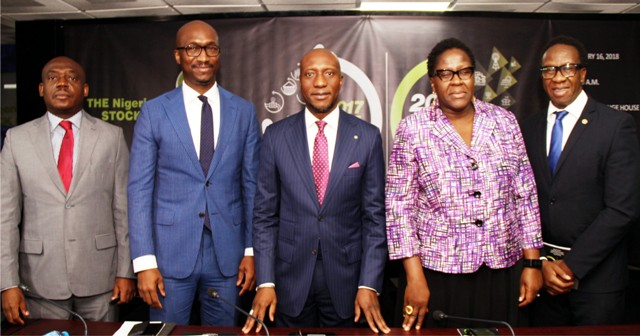
 News1 day ago
News1 day agoStock Market Trends Downward, Investors Lose N118bn
-
Rivers1 day ago
Fubara Tasks Churches On Prayers
-
News3 days ago
Stop Triggering Man-Made Disasters, NSCDC Warns Nigerians
-
Sports3 days ago
Simplified Football Cup Competition To Commence, Aug 12
-

 News1 day ago
News1 day agoFubara Gives Scholarship To 100 Children, Widows Of Fallen Heroes
-
Nation1 day ago
Senate Passes Bill To Ensure Uninterrupted Tenure Of IGPs


